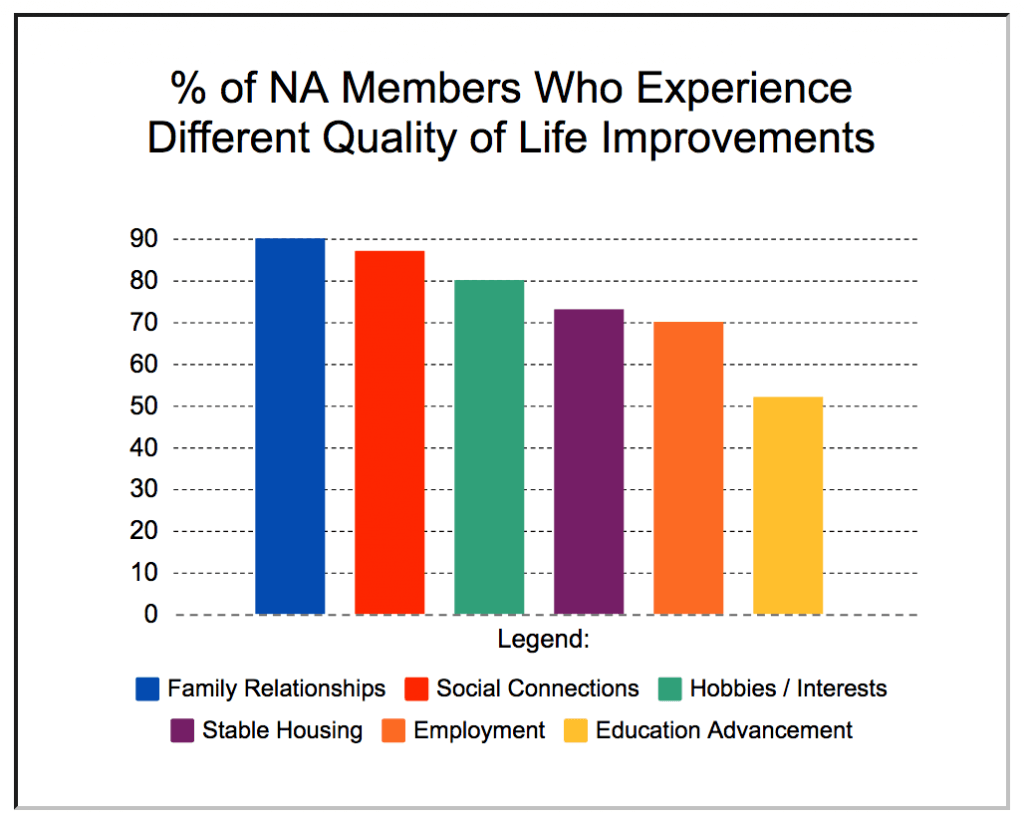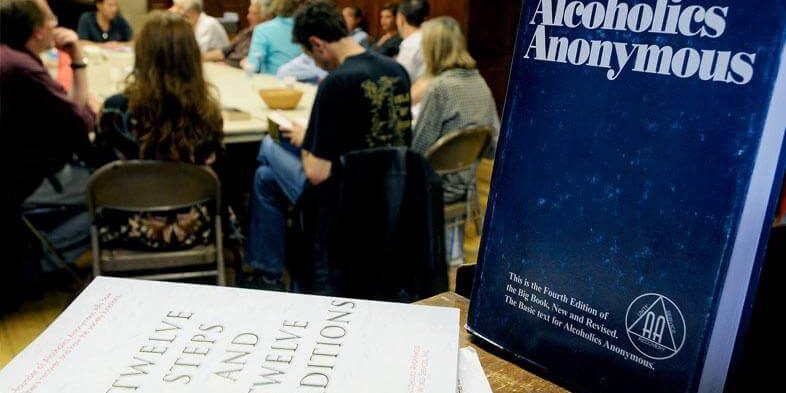The 12 Steps has been around since the mid-1930s and is well known for its transformative powers; turning previously hopeless alcoholics and addicts into clean and sober upstanding members of the community. However, by a small minority, it has been labelled a cult. This label can dissuade desperate addicts and alcoholics from even trying the 12 Steps before deciding if it is for them or not.
Since it was originally introduced by two alcoholics, who found practising its principles and helping others saved them from an alcoholic death, Alcoholics Anonymous has mushroomed into millions of meetings around the world.
Definition of A Cult
Now, according to the Oxford English dictionary, the definition of a “cult” is as follows:
- A system of religious veneration and devotion directed towards a particular figure or object.
- A relatively small group of people having religious beliefs or practices regarded by others as strange or as imposing excessive control over members.
- A misplaced or excessive admiration for a particular thing.
- A person or thing that is popular or fashionable among a particular group or section of society.
Alcoholics Anonymous has been the basis of many other successful 12 Step fellowships that treat many other chemical substance addictions and activity based addictions, including Cocaine, Codependency, Gambling, Narcotics, Prescription drugs, Legal Highs, Sex and Love and Eating disorders.
The definition of what a cult is, by no means, fits the description of the 12 Steps in any way shape or form.
Basically, whatever your addiction is, providing you are willing to change and have a desire to stop, there is a 12 step solution for it.
Busting the Cult Myth of AA

In reference to the Oxford Dictionary’s definition and meaning of the word cult along with other similar descriptions, AA and other 12 Step fellowships differ in so many ways. There is also the proven fact, that for many, this method of overcoming the killer disease of addiction works!
The simple fact is, that the 12 steps have saved millions of alcoholics and addicts who would have otherwise died from addiction. It has also reunited families; there are even 12 Step groups to help family members so that they too can recover from their loved one’s addiction.
Furthermore, doctors, addiction professionals and psychologists will often recommend the 12 steps as an effective form of addiction treatment. This is because they have seen the 12 Steps succeed in transforming the most hopeless of cases and achieve what they have been unable to.
How the 12 Steps Work
The 12 Step programme consists of 12 Steps, that when completed in succession and in their entirety, brings about a complete change in that person’s thinking and actions. A change that is sufficient for them to recover from active addiction and alcoholism.
It has been acknowledged for decades, that addicts and alcoholics need to substantially change their thinking in order to stay clean and sober. The disease of addiction resides in the brain and manifests in obsessive, harmful thought patterns and compulsions.
12 Step fellowships can be accessed anywhere at any time, for many in recovery this is an absolute lifeline. As well as face to face meetings, there is also now 24/7 availability of telephone and online meetings.
From a medical and psychological perspective, the 12 Steps can help to cognitively reprogramme any individual who implements the recovery programme into their life and uses its principles as a guiding force.
The Benefits of 12 Step Fellowships
Benefits of attending a 12 Step fellowship include:
- Being with like-minded people who understand your struggles and can support you in overcoming them
- No longer feeling alone in your addiction
- Gaining a sense of purpose and belonging
- Tangible proof in the meetings that the 12 Step programme works
- Acceptance, compassion, inspiration, encouragement and understanding from other members.
- You will learn much about the disease of addiction as well as yourself
- Gaining an effective solution to addiction that is transformative in its process and practice
- There is no affiliation or conflict with ANY religion, as it allows you to have your own conception of spirituality
- You attend of your own free will and it is self-supporting through its members, but it is not a requirement that you contribute.
Do I Have to Believe in God to Do the 12 Step Programme?
The short answer to this is no, you do not have to believe in God or a God. The Steps encourage you to search for a higher power or something that is greater than you that can help you to stay clean and sober. This may be something as simple a group of sober people, a spiritual belief, nature, love and truth, your inner conscience, a religious belief, or a God of your own understanding.
Many find, through the process of the steps, that they find their own conception of a higher power in their life.
Because the word God is mentioned within the steps, this is why some believe that it is a cult. The Big Book of Alcoholics Anonymous, outlining the programme of recovery, is very clear in that it is your own conception of a God or higher power; not a conception that belongs to others in the group or religious affiliation. Many members who join, already have their own religious or spiritual beliefs but this is not the case for the majority.
With an open mind, the 12 Step programme can work for anyone, regardless of age, race, gender, class, religion, non-religion, upbringing or sexual orientation.
There are also many atheists in the rooms of Alcoholics Anonymous and other 12 Step fellowships that stay clean and sober just by practising the virtues and principles of the programme. This would dispel the myth that 12 Step fellowships are a cult.
Rehab Today by PCP and 12 Step Treatment
Rehab Today by PCP’s addiction treatment programme has proved itself to be very successful in treating those suffering from substance abuse and addiction. We introduce our rehab clients to the 12 Steps as part of our primary alcohol and primary drug treatment.
In addition to 12 Step therapy, we also provide other powerful evidence-based addiction treatment therapies, as there are some aspects of addiction that require more intensive, specialist professional treatment.
No two individuals suffering from addiction are exactly the same, our treatments take this important factor into account.
The 12 steps perfectly compliment our treatment programme and provide a steadfast foundation that the client can continue to access once they have returned back home.
Other therapies that we offer as part of our comprehensive treatment programme, are designed to aid the much-needed change in cognitive processing, false belief systems and organic conditioning.
Our team of qualified addiction counsellors and therapists also unearth and heal the issues relevant to each individual client. This means that we treat a diverse range of individuals from all walks of life, some of whom suffer from dual diagnosis or have experienced trauma.
Rehab Today by PCP has humbly observed many individuals, who have experienced the miracle of recovery using the 12 steps as part of their recovery. If you have any concerns or questions about how we incorporate this into our treatment or any other aspects of our rehab programme, please call and speak to one of our team.
Don’t let fear or the opinions of anyone hinder you from accessing life-saving treatment.
The 12 Steps
Here are the Twelve Steps as outlined in The Big Book of Alcoholics Anonymous:
- We admitted we were powerless over alcohol – that our lives had become unmanageable.
- Came to believe that a Power greater than ourselves could restore us to sanity.
- Made a decision to turn our will and our lives over to the care of God as we understood Him.
- Made a searching and fearless moral inventory of ourselves.
- Admitted to God, to ourselves and to another human being the exact nature of our wrongs.
- We’re entirely ready to have God remove all these defects of character.
- Humbly asked Him to remove our shortcomings.
- Made a list of all persons we had harmed and became willing to make amends to them all.
- Made direct amends to such people wherever possible, except when to do so would injure them or others.
- Continued to take personal inventory and when we were wrong promptly admitted it.
- Sought through prayer and meditation to improve our conscious contact with God as we understood Him, praying only for knowledge of His will for us and the power to carry that out.
- Having had a spiritual awakening as the result of these steps, we tried to carry this message to alcoholics and to practice these principles in all our affairs.
More information on the 12 Steps can be found on the UK Alcoholics Anonymous website and the UK Narcotics Anonymous website, as well as other 12 Step groups.







